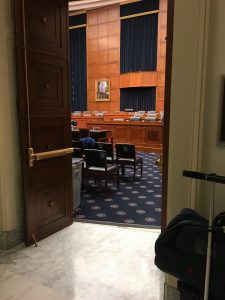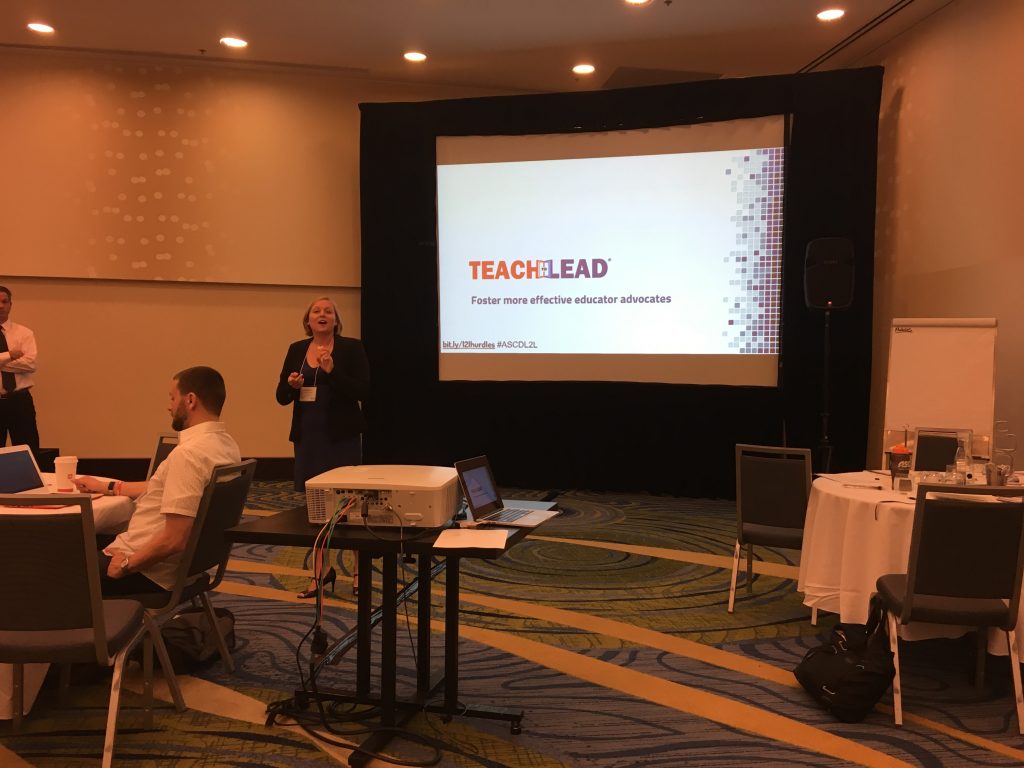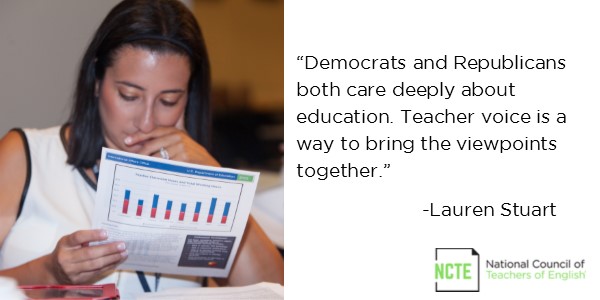
This post is written by the 2017 NCTE Kent Williamson Policy Fellow Lauren Stuart. This is part of a weekly series.
This week kicked off with Senate meetings. We met with staffers from both Republican and Democratic offices to urge the Senate not to eliminate Title II funds (so you can still have access to professional development) and to protect the $189 million for LEARN (intervention support). Both sides were sympathetic to our concerns, but it’s clear that they are contending with budget cuts. There is a cap on non defense discretionary spending, and it has seen a significant drop. Staffers from both sides of the aisle said that if we want to protect these funds, then raising the cap is essential. What does that mean? At its essence, it is akin to giving me a budget of $20 to feed my family of four each month. It’s just not possible, and certainly not healthy. Food is a critical part of life. I need to raise the cap on my budget in order to prevent my kids from starving. The same goes for Title II and LEARN, two programs critical to quality education. We should not be forced to cut these necessary programs. NCTE issued a press release later in the week expressing deep concern about these proposed cuts in the House appropriations bill.
On Tuesday I went with NCTE’s Lu Ann McNabb to the House Committee on Education and the Workforce hearing on ESSA state plans. The Democrats were vocal about the lack of representation from the Department of Education, and wondered when Secretary DeVos would appear before the committee. The Republicans voiced concerns about the department’s recent feedback on state plans and felt it was overreaching. Chairwoman Foxx was clear in stating that the committee will watch to make sure DC “keeps its distance” in regards to ESSA implementation.
Wednesday I was invited by rock star teacher leader Anna Baldwin to attend the Convening on Systems of Support for Excellent Teaching and Leading at the US Department of Education. The Ambassador Fellows worked this year to create a framework that “allows states, districts, and schools to assess the alignment of their systems of support for teachers and leaders to a set of core principles.” Participants spent the day collaborating and providing feedback on the framework. Keep an eye out for the release of this tool. I know I am looking forward to sharing with my administration and strategizing ways we can improve our professional learning. Jason Botel, acting assistant secretary for elementary and secondary education, offered closing remarks. He stated that he sees ESSA as an opportunity to tailor education programs to the students. He also recognized that the work is hard, and teaching is hard. I couldn’t agree more!

At the end of the week I was able to spend some time with my ASCD Teach to Lead team at L2L. This past year, Meghan Everette led a team which consisted of myself, Danielle Brown, Jason Flom, Kenny McKee and David Griffith to determine how educators view their role in advocacy and what can be done to better support potential advocates. The results of this research can be found at the Hurdles and Hopes website. The purpose of the L2L session was to engage with the results of the study. We discussed advocacy barriers and ideas for removing those barriers. I particularly enjoyed crowd-sourcing ideas for professional development modules around advocacy. The room was full of leaders who had strong ideas on how to improve educator advocacy.
P&O (People and Opportunities)
Meghan Everette: If only there were words. Meghan is a Hope Street Group alum, ASCD Influence Leader, co-creator of the #EdAdvBecause chat, and an ASCD Emerging Leader class of 2014. She is also a Scholastic blogger (so check that out) and all-around super mom and amazing human.
Anna Baldwin, Amanda Barney, Monifa McKnight, Dana Nerenberg and the US Department of Education School Ambassador Fellowship: All of these magnificent ladies are ambassadors. It was great seeing fellow Hope Street Group alum Anna, and fellow EdReport’s crew Dana. Amanda was an excellent facilitator and sounding board, and I had an invigorating intellectual discussion with Monifa.
Jennifer Briones: I met Jen when she worked for Hope Street Group. Now she is a Policy and Advocacy Associate for Data Quality Campaign. She was kind enough to help me with my research project while I am here.
Angela Brizuela and the Library of Congress Summer Teacher Institutes: Teaching with Primary Sources: Angela is a STEM teacher at my school, El Rodeo Elementary. She was in town for the week at the Library of Congress for a teacher institute (check out the site, they have other options that cover all teachers.) This particular institute gathered a consortium of educational partners in an effort to develop curriculum using primary sources from the Library of Congress. Angela had high praise for the event: “I found the institute to be enriching in that I was able to develop science curriculum that was interdisciplinary and encourages critical thinking which is vital to developing responsible citizens.”

